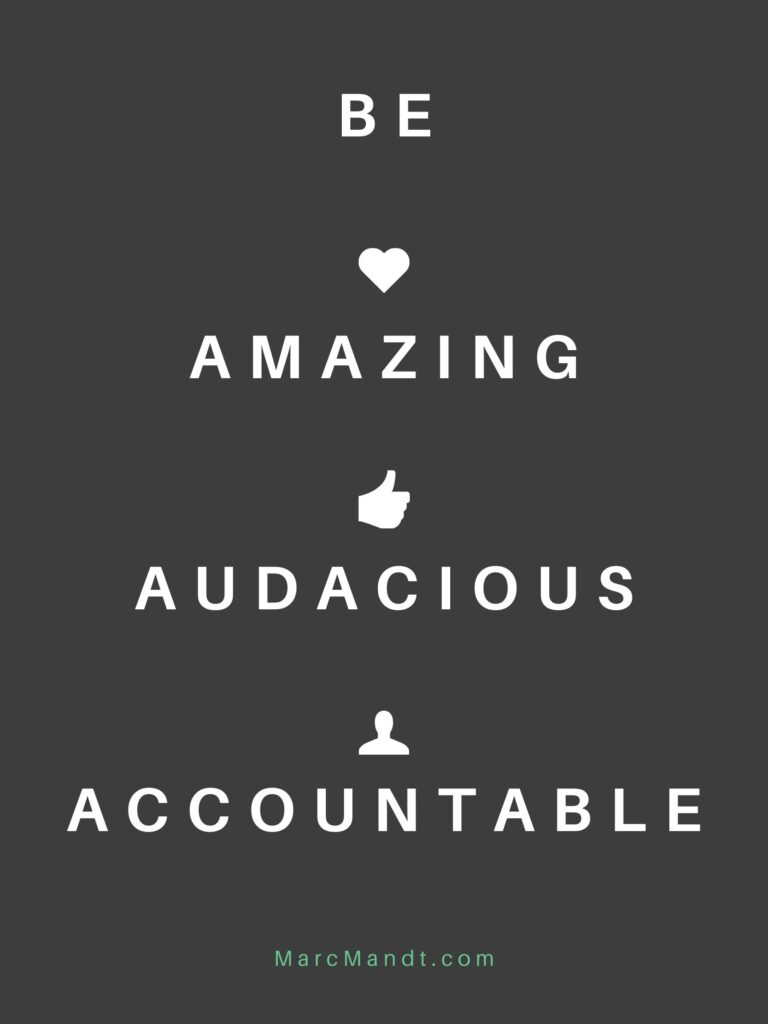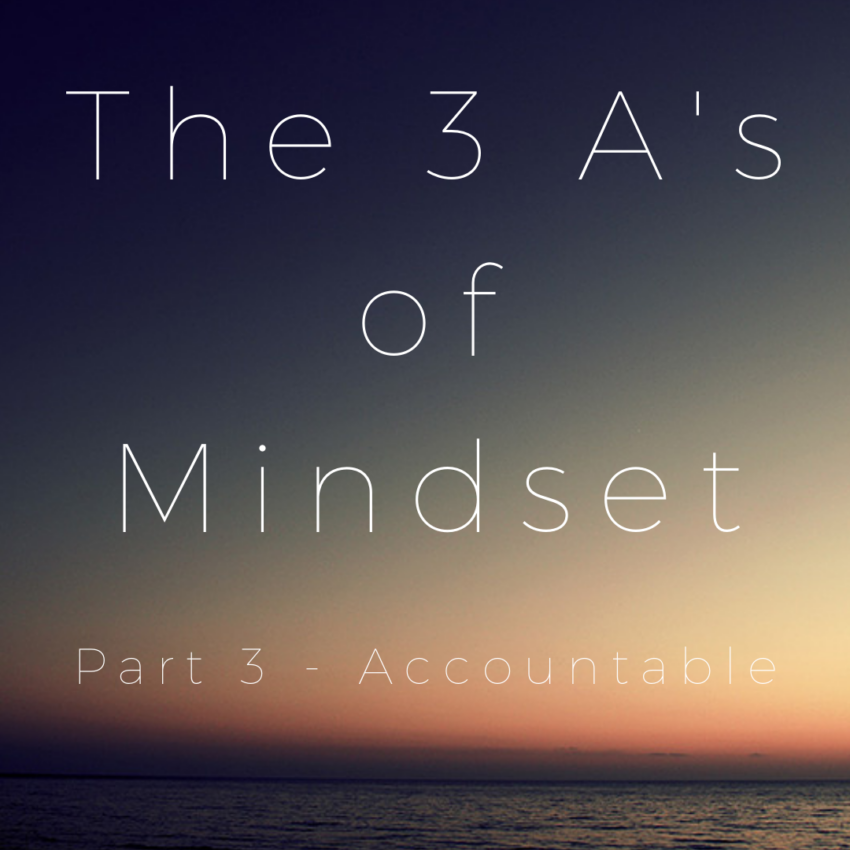Be Accountable
Whatever it is you are wanting to accomplish you need to build in some ways to hold yourself accountable. I’ll mostly cover that in this post but you can also use these concepts when it comes to holding yourself accountable to others in your life as well.
Keeping yourself accountable can come in the forms of internal and external methods, and we’ll look at some of these concepts and some simple practical ways to implement some strategies.
Let’s look at accountability as it relates to your personal goals. Zig Ziglar had a bunch of great sayings, but one of my favorites is one that relates to goals. “If you aim at nothing, you’ll hit it every time.”
Goals are great and when you really think through them, they give you a target or a destination and should provide you with the “why” that can help shape your routine, habits, etc.
I won’t repeat the importance of writing down your goals because you’ll quickly see with a quick internet search that the importance of that has been covered ad nauseam; however, something I will say about goals is to keep them simple and keep them visible. This might be as simply as sticky notes, a list prominently posted in your home or office, or even a vision board; whatever works best for you and where you know you’ll see it regularly.
While writing down your goals and keeping them visible certainly improves your odds, but without accountability it’s going to be a lot harder to achieve them, so let’s talk about how you can build in some accountability so you can accomplish your goals.
Here are a few simple concepts to implement.
After you write down your goals, set some milestones. A good goal can’t be achieved overnight; it’s a process that involves steps of incremental improvement. For example:
If I want to lose 15 pounds, what’s my target date to achieve that goal?
- How many pounds do I need to lose each week to get there?
- What will I do for exercise or diet to reach my goal?
If I want to read a book a month, what do I need to build into my life and my daily routine to make that happen?
- Make a list of books to read
- Why do I want to read the books that I have selected?
- Determine what is the best time of day / days of the week to read
Building in Accountability
Some easy ways to build in accountability are simple such as:
- Setting a recurring reminder on your phone or computer to check your list of written goals
- Keeping your goals visible on your desk, bathroom mirror, etc. (Vision boards can be a great complement to goal visualization as well)
- Another really great tool is FutureMe.org This is a really cool website because it allows you to send an email to your future self. (It is a free service, but there is a donation button if you like)
Have an accountability partner
Having some external accountability is good as well, so find an accountability partner. This needs to be someone that you trust to give you that tough love type of feedback and not someone who will just tell you what you want to hear or enable bad habits.
When you are looking for this person, make sure it’s someone that’s going to push you to do better, ask you tough questions about your progress with your goals, and tell you the things you need to hear. You need to be very candid with this person regarding your goals and the “why” behind them. Remember that your goals aren’t their goals, and their goals aren’t yours.
Give yourself some grace.
You’re not going to be perfect and you’re probably not going to be on course 100% of the time. If you’re not where you wanted to be at a certain point, don’t beat yourself up or throw in the towel; start where you are, figure out what you need to do to get back on course and do it.
Here’s your challenge:
If you haven’t done so already for the year, write down just 3 things you would like to accomplish or improve upon over the next 12 months.
Next, pick one of those and set some steps and milestones for the next 90 days. Based on the type of goal this might be a daily or weekly task, but don’t push it out any further that.
Now picture yourself 90 days from now and what it feels like to have made that incremental progress. While you’re doing that, think about what obstacles you might have faced along the way and go ahead and figure out now how you’re going to recognize those, overcome them and if your 90 goal needs any kind of adjustment.
Put this goal into action, build in the accountability measures and go crush it.



